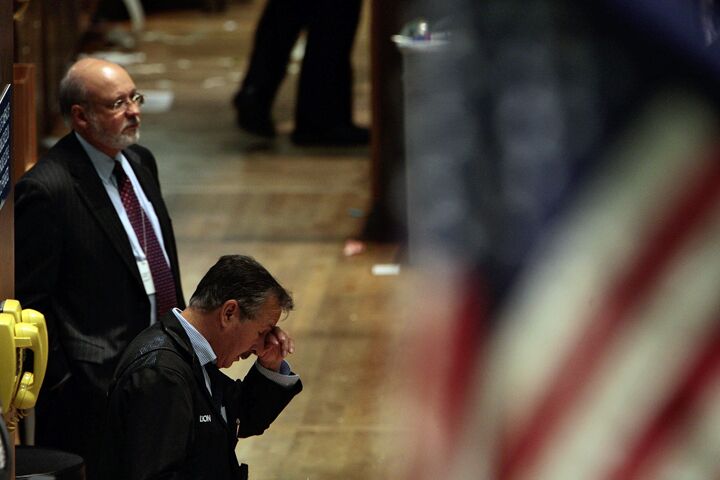
International Representatives Demand to Oversee U.S. Markets
In his foreign-policy speech on August 27, French President Nicolas Sarkozy called for an enhanced global rule book to avoid financial crises. Sarkozy, who has vowed to “moralize financial capitalism,” said such crises could reoccur if “the leaders of major countries” did not take “concerted action to foster transparency and regulation of international markets.”
International bankers and investors from China to France and Germany have lost billions of dollars because U.S. investments, sold as safe, turned out to be far riskier and worth much less than what American investment-rating agencies and banks led them to believe. They don’t want to be deceived again.
The international worry is that American regulators are not properly monitoring the products or alerting investors to the risks. As the subprime crisis in America has unfolded and millions of homeowners have started to default on their mortgages, the incredibly lax lending practices of American companies and banks have come to light.
Over the past five years, high-risk subprime loans, known as “liar’s loans” (where applicants simply stated their income, knowing there would be no verification) and ninja loans (so-called because they are loans made to people with No Income, No Job or Assets) became commonplace. These loans were then packaged, marketed as high-quality securities by U.S. banks and rating agencies, and in many cases sold to international investors.
Now international investors are asking not only why American banks were allowed to originate hundreds of thousands of mortgages to home buyers whom they knew would likely be unable to repay them, but also why these risky investments were pawned off with top ratings to unsuspecting investors.
“We need an international approach, and the United States needs to be part of it,” said Peter Bofinger, a member of the German government’s economic advisory board.
Dick Bryan, a professor of economics at the University of Sydney, agrees. “[T]here is the need to challenge the sovereignty of national regulators—why should the rules of lending in the U.S. be left to U.S. regulators when the consequences go everywhere?” he said. In this globalized world, investors in Australia were hit particularly hard by exposure to U.S. subprime loans. “[A] problem in one location is a problem everywhere,” Bryan said.
If and how long Washington will be able to resist international pressure is unclear, but America will probably fight hard to limit foreign regulation, especially since financial products and services are one of America’s most dynamic and most important export industries. So far, the response from Washington is that it wants “no form of oversight.”
However, while regulators in the U.S. have been unreceptive to international monitoring, Europe and Asia, unlike in years past, now have growing financial leverage up their sleeves.
“America depends on the rest of the world to finance its debt,” reminded Bofinger. “If our institutions stopped buying their financial products, it would hurt.”
Foreign willingness to purchase U.S. debt has kept interest rates low in America—thereby creating millions of jobs in real estate, home construction, remodeling and other associated industries. If foreigners stop lending to America because of difficulty assessing borrower credit-worthiness, the cost of borrowing could go way up.
But a potentially bigger concern is the effect the subprime disaster could have on America’s reputation as a financial safe haven. As the world’s largest debtor nation, America borrows hundreds of billions of dollars per year from the rest of the world. America needs foreign money, and its ability to attract it depends on its perception as a stable and trustworthy borrower.
The exposed corruption associated with America’s housing bubble, which includes mortgage originators, banks and rating agencies, may be irrevocably damaging the nation’s economic reputation and its ability to finance its debt.
Jim Willie, statistical analyst and financial editor of the Hat Trick Letter, wrote:
The U.S. financial system is teetering. Its U.S. dollar currency is losing global support, with some outright revolts in crucial territories. The chief private sector export from the U.S . financial sector has been fraud-ridden asset-backed bonds [largely composed of risky mortgages] and their toxic credit derivatives. … For years an institutional dishonesty within all things financial in the United States has been engrained, spreading …. The Wall Street hucksters exported fraud. The backlash might be more severe than the soft soap gurus anticipate. Look for an international boycott. The shock waves in the U.S. financial markets are preliminary symptoms of bigger events soon to come.
America’s economic recklessness seems to be coming home to roost. Politicians, regulators and financial specialists outside the United States are seeking a role in oversight of American financial institutions and rating agencies in the wake of recent mortgage and banking problems. Indebtedness is eroding more than America’s economic independence—it’s eroding its status as a superpower.
